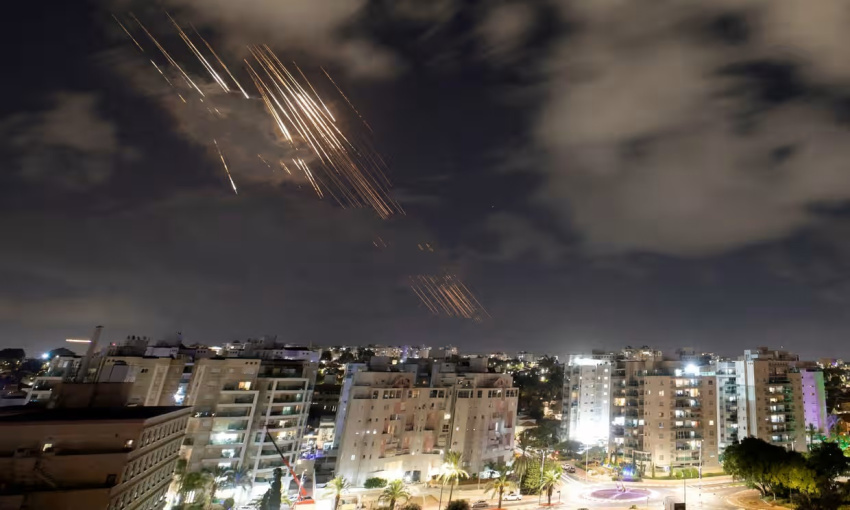Iran's Deterrent Capability Shifts the Regional Balance
Kaveh L. Afrasiabi

On the first anniversary of the October 7th Hamas assault on Israel, triggering a new phase of regional conflict that has now escalated to the brink of a direct war between Iran and Israel, despite the 'fog of war' it is abundantly clear that Iran has established its credible deterrent capability. This was first showcased last April, when Iran demonstrated the end of its "strategic patience" vis-a-vis Israel's attacks on Iran's assets, e.g., Iran's consular building in Damascus and the assassinations of its nuclear scientists, by lobbing hundreds of missiles and drones at Israel, eliciting a muted Israeli response. By comparison, Iran's second attack on October 1, 2024, featuring some two hundred missiles, many of which hit their intended targets according to reliable Western sources, established with compelling clarity the fact that Iran is capable of effective missile attacks on the entire Israeli territory, despite Israel's possession of a formidable air defense system; that system's vulnerabilities have now been exposed and, in turn, this lends much more poignancy to Iranian military officials' explicit threats of even more powerful and "harsher" retaliatory attacks if Israel attacks Iran. Case in point, Iran's military leaders have vowed to hit Israel's energy and economic infrastructure if Israel damages Iran's energy hubs. Clearly, no one in Israel can now afford to ignore such warnings from Iran, given the sobering reality of Iran's formidable missile technology, serving the country's deterrent capability.
Hence, despite the rhetoric of a "changing balance of power" favoring Israel coming from Tel Aviv, the stark reality of Iran's military prowess showcased to the world after two missile (and drone) attacks on Israel, in terms of pure geostrategic calculations, it is the pure opposite and it is, in fact, Israel that must reckon with Iran's new status as a "regional missile superpower." In turn, to use a cold war language, this represents a 'balance of mutual assured destruction," whereby the regional military heavyweights face the prospect of a 'lose-lose' in a full-scale military confrontation, which can easily drag on into a protracted warfare, a "missle ping pong" to borrow from the Iran expert Ali Vaez, siphoning the resources of both countries, to the benefit of other regional players such as Saudi Arabia. This means that the Israeli Prime Minister's explicit pursuit of a Pax Israelica in the Middle East is chimerical and self-delusional, not based on a realistic assessment of balance of power, which dictates taking into consideration Iran's counterstrike capability.
Consequently, it remains to be seen if Israel's next move will be based on strategic realism, which would counsel an aversion of a ruinous total war with Iran, or wishful quests for hegemony, which explains much of what has transpired over the past year in Gaza and Lebanon. Chances are that the Israeli military, which shows signs of weakness and exhaustion after a whole year of intense combat, will tilt the right-wing politicians nowadays clamoring for war with Iran in the direction of caution, optimistically speaking.
For its part, Iran needs to engage in a more spirited conflict management campaign, by initiating regional and global efforts toward a meaningful ceasefire in both Lebanon and Gaza. After all, Iran's national interests dictate the exigencies of a regional foreign policy aimed at regional peace and tranquility. Yet, as stated above, this can and should be based on a credible deterrent capability in today's turbulent environment in the Middle East and beyond.
Kaveh Afrasiabi is a political scientist and author of several books on Iran's foreign and nuclear policies.

